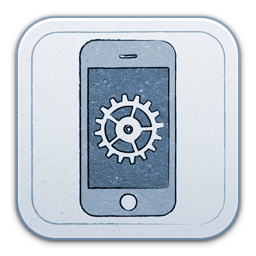 Sometimes, a user may think that managing iOS devices is a difficult
task, but you will not be one of them if you know about the iPhone Configuration Utility.
Since the Apple
configuration utility is ideal for managing, securing, and encrypting
your iOS device and its data, you must the tool and start using it. The Configuration Utility by
Apple offers immense support to manage iPads, iPhones, and iPod touches in
corporate environments and reduce the data loss risks. Additionally, it also
offers some basic layers of protection to safeguard your devices, data and
access from malware authors and hackers.
Sometimes, a user may think that managing iOS devices is a difficult
task, but you will not be one of them if you know about the iPhone Configuration Utility.
Since the Apple
configuration utility is ideal for managing, securing, and encrypting
your iOS device and its data, you must the tool and start using it. The Configuration Utility by
Apple offers immense support to manage iPads, iPhones, and iPod touches in
corporate environments and reduce the data loss risks. Additionally, it also
offers some basic layers of protection to safeguard your devices, data and
access from malware authors and hackers. Why You Need iPhone Configuration Tool?
The configuration tool will help in creating, modifying, adding, and
changing configuration profiles that act as a set of restrictions to allow your
iOS devices to work in corporate infrastructure. The tool also helps in
confirming or framing the IT policies to avoid snooping, hacking, and
man-in-the-middle attacks. A general configuration profile may include settings
related to email and Exchange accounts, digital certificates, passcode locks,
Wi-Fi settings, and other important passwords.
The
tool can set up custom APN and configure the proxy for optimal cellular data
usage. The features turn out to be extremely helpful whenever you need to get
internet access on certain carriers that don’t support a defined data plan.
Here are some common things that the Apple Configuration Utility can do:
•
Create, edit and install configuration profiles
•
Install provisioning profiles
•
Install unpacked .app bundles
•
View Syslog of the connected device
How Can You Manage Cellular Data Network Settings Using iPhone Configuration Utility?
If
you are a tech expert or have little knowledge about programming, then you must
be aware that Access Point Name (APN) defines the network path for Internet
connectivity. The utility comes quite helpful while troubleshooting low, or no Internet
connectivity issues. Follow the tips mentioned below to learn how to view or
edit the APN for cellular data services on iPhone and iPad.
Note:
The steps of the tutorial will only bring the desired results if your device
uses a SIM card, and your carrier permits you to edit the APN.
Steps to Edit and View Your APN Settings
•
Go to Settings > Cellular > Cellular Data
Network to view the APN settings on your iOS device
•
Tap each field and enter the desired details to
edit the settings
•
Wait until settings get saved automatically
•
If your carrier doesn’t allow you to edit the
cellular data settings, use a configuration profile with the correct setting to
enjoy seamless connectivity.
Steps to Reset Your APN Settings
•
Tap ‘Reset Settings’ option on your iPhone to
revert to your carrier's default APN information
•
If you’ve installed a configuration profile, the
iOS device will use the profile's default information to reset your APN
settings
•
Users accessing an iPhone or iPad in an
enterprise environment may have specialized APN settings, created and managed
by an IT Manager. Therefore, contact your IT manager to change your APN or
change it by using a configuration profile. To do the same, follow these steps:
a)
iPhone:
Settings > Cellular > Cellular Data Network > Tap the ‘Reset Settings’
button
b)
iPad:
Remove the configuration profile and try adding it again.
Conclusion
Incorrect
APN settings may force you to lose functionality and might result in low or no
connectivity situations. Sometimes, you may also require paying additional
charges or monthly Internet plan bills, even if you haven’t received or used
the cellular data connectivity services. Tech gurus always recommend not
editing the APN unless your carrier or IT manager asks you to do so because it
may create some unnecessary hurdle or problems in the network connection. You
can always contact your carrier vendor to verify the correct APN settings and
enjoy a seamless browsing, online shopping, and online gaming experience.



No comments:
Post a Comment